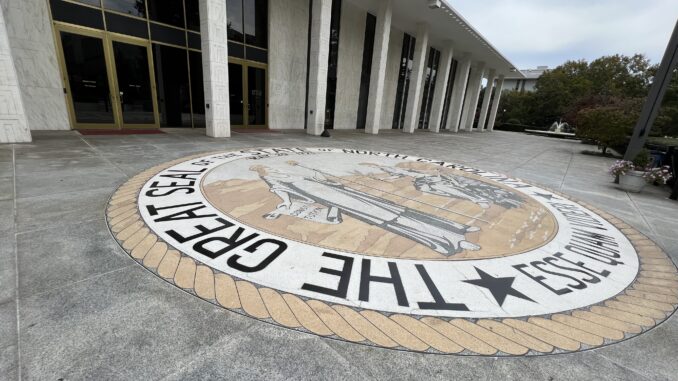

RALEIGH — The North Carolina General Assembly returned for the short session on Wednesday with a handful of items on its agenda.
Lawmakers will take up adjustments to the latest budget, including the possibility of adding $300 million to further fund the Opportunity Scholarship Program to meet the high number of applications this year.
The number of scholarship applicants outstripped the funds allotted, with 72,000 families applying but only 13,511 new students being awarded funds under Tier 1. The program was expanded to all families using a tiered award system last session that gives priority to lower-income families and current scholarship recipients.
Medicaid expansion is also going to need more funds to the tune of $400 million. The state has seen approximately 400,000 of an estimated 600,000 enroll since the expansion went live Oct. 1, 2023.
Lawmakers are also expected to take a look at diversity, equity and inclusion, known as DEI, as it is being applied in academics.
The idea of tackling DEI first popped up during a UNC Board of Trustees meeting in March in remarks by member Jim Blaine, the former senior adviser to Senate Leader Phil Berger (R-Eden). Blaine called it “an elephant in the room” and said either the UNC Board of Governors or the General Assembly will “follow Florida’s path” by dismantling DEI on college campuses.
In its meeting on April 17, the UNC Board of Governors Committee on Governance unanimously voted to repeal its DEI policies for the entire UNC System. The policy change will be heard by the full BOG at its upcoming May meeting.
Speaker of the House Tim Moore (R-Kings Mountain) has indicated he wants to address rising antisemitism in the state, immigration concerns such as sheriffs complying with Immigration and Customs Enforcement detainers on illegal migrants, and ways to help citizens struggling due to inflation.
Moore has said he doesn’t foresee the prospect of any new abortion laws or legislation regarding in-vitro fertilization (IVF) in light of recent legal developments related to Alabama’s Supreme Court decision on frozen embryos used for IVF that The Associated Press reported had led to legislative action there about protecting IVF clinics.
Marijuana legislation that didn’t make it through the previous long session is a “maybe,” Moore said, however, other drug-related items may be addressed.
The House Select Committee on Substance Abuse has taken an interest in regulating “gas station heroin,” a substance containing tianeptine and often involves products found in gas stations and convenience stores found under names like Tianna, Pegasus, Neptune’s Fix or Zaza. The items can be bought without an ID or prescription with no age restrictions. A bill run last session looked to regulate such items and reclassify them as a Schedule 1 drug.
The General Assembly could also look at state regulations on deepfakes, particularly in election ads. North Carolina saw its first encounter with deepfakes in the state’s 6th Congressional District race in March.
Digital privacy laws, particularly those aimed at protecting children on social media platforms, may also be on the table.



